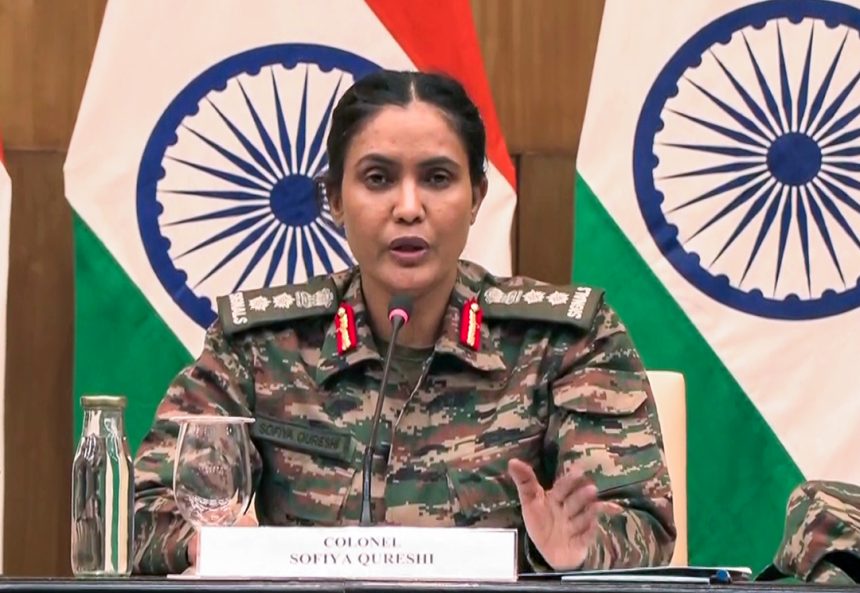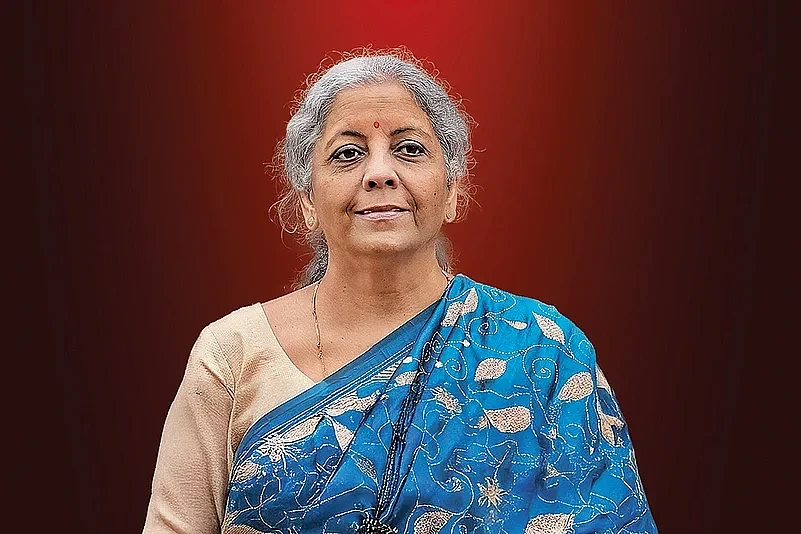09-MAY-2025,06:50PM In a significant revelation that has raised eyebrows in national defense circles, Colonel Sofiya Qureshi, a senior officer in Indian military intelligence, has confirmed that Pakistan recently attempted an airspace intrusion using Turkish-manufactured Asisguard Songar drones. The incident reportedly occurred along sensitive sectors of the India-Pakistan border and has intensified diplomatic and military scrutiny over Islamabad’s growing use of foreign technology in cross-border operations.
The incident has not only put the spotlight on Pakistan’s drone capabilities but also on India’s defensive posture. Colonel Sofiya Qureshi, known for her precision and strategic depth in intelligence operations, briefed the media with a detailed breakdown of the situation and the potential threat matrix involved.
Sofiya Qureshi Reveals Details of Airspace Breach by Armed Turkish Drones
Sofiya Qureshi Cites Increasing Complexity of Drone Warfare from Pakistan
During the official briefing held at an Army Southern Command intelligence unit, Sofiya Qureshi revealed that the drones used in this intrusion were identified as Asisguard Songar, a type of unmanned aerial vehicle (UAV) manufactured in Turkey and capable of carrying light ammunition, including automatic rifles and grenades.
“These are not your typical surveillance drones,” Colonel Sofiya Qureshi stated. “These are tactical weapons platforms capable of engaging in offensive operations. The use of Songar models signals a dangerous escalation by Pakistan in terms of technological warfare.”
The incursion was reportedly detected by India’s radar surveillance systems and promptly intercepted before any damage or ground contact could be made. The Indian Air Force (IAF) scrambled jets and anti-drone units were activated across forward posts to prevent further airspace violation.
Turkey-Pakistan Defense Ties Under Spotlight After Sofiya Qureshi’s Disclosure
Military Intelligence Led by Sofiya Qureshi Tracks Drone Origin and Payload
Colonel Sofiya Qureshi emphasized that the Indian Army’s intelligence wing had been monitoring suspicious drone activities near the Line of Control (LoC) for the past few weeks. Following the breach, forensic examination of drone debris (from one that was neutralized by Indian defense systems) confirmed Turkish manufacturing signatures and payload attachments suitable for low-level combat operations.
She explained how Turkey and Pakistan’s growing military cooperation, especially in the defense drone sector, may pose a wider regional challenge. “This isn’t an isolated event. It reflects a broader shift in asymmetrical warfare tactics,” Sofiya Qureshi said.
The intelligence report presented by Qureshi is expected to be shared with the Ministry of External Affairs and the National Security Council for further evaluation.
India Enhances Border Vigilance in Wake of Sofiya Qureshi’s Revelation
Sofiya Qureshi Pushes for Upgraded Counter-Drone Strategy Along LoC
Colonel Sofiya Qureshi also proposed a multi-layered enhancement of India’s drone defense grid. She emphasized the importance of integrating artificial intelligence-based surveillance tools and deploying counter-UAV systems like the DRDO-developed anti-drone jammers and kinetic interception technologies.
“Modern warfare is not only about boots on the ground. It’s also about eyes in the sky,” Sofiya Qureshi stated. “We are recalibrating our surveillance strategy, particularly in sectors that have seen frequent drone sightings.”
In response to Qureshi’s report, Army engineers are now conducting feasibility studies to set up rapid-response drone neutralization zones. Moreover, patrols along the LoC have been instructed to report drone sounds or unusual air patterns promptly to base command units.
Political and Defense Establishment Respond to Sofiya Qureshi’s Statement
Parliamentarians and Analysts Applaud Sofiya Qureshi’s Clarity and Leadership
Colonel Sofiya Qureshi’s detailed disclosure has sparked immediate responses from political circles and defense experts. Former Defense Minister and current Rajya Sabha member Subhash Bhamre praised the Colonel’s forthrightness, stating, “Officers like Sofiya Qureshi embody the transparency and strategic acumen India needs in such volatile times.”
National security analysts also noted that Qureshi’s analysis offers critical insight into the changing nature of regional conflict. With drones becoming more autonomous and weaponized, the need for integrated air defense systems has never been more pressing.
Opposition leaders have demanded a parliamentary briefing on the breach, citing the need for an all-party consensus on India’s counter-drone doctrine. However, the Ministry of Defence has declined to disclose further operational details at this time.
Regional Implications: Sofiya Qureshi Warns of Drone Proliferation Across Borders
Indian Army Official Urges Vigilance on Cross-Border Drone Collaborations
Colonel Sofiya further warned that Pakistan’s collaboration with Turkey on drone technology could signal a broader proliferation of armed drones across South Asia. Given that similar models have already seen use in Middle Eastern conflicts, their transfer into Pakistan’s arsenal raises both tactical and diplomatic alarms.
She urged neighboring countries to remain vigilant and called on the international community to enforce stricter controls on drone sales to nations with poor records on arms transparency.
“Unregulated drone warfare can destabilize fragile peace architectures in the region,” Sofiya Qureshi noted. “We must act before drones become the next Kalashnikov of low-intensity warfare.”
What’s Next: Military Exercises and Technological Upgrades Underway
Following Sofiya Qureshi’s Report, India Plans Airspace Security Drills
To counter the evolving threat landscape, the Indian Army and Air Force are jointly planning military exercises specifically aimed at drone warfare scenarios. These exercises will include simulated incursions, real-time radar tracking, and neutralization drills involving advanced jamming and laser-based technology.
Colonel Sofiya will reportedly be overseeing the intelligence coordination segment of these drills, focusing on drone behavior patterns, electronic signature recognition, and threat origin prediction.
Additionally, the Indian government is exploring defense deals with Israel and the US to procure high-end anti-drone systems equipped with AI-powered interceptors.
Conclusion: Sofiya Qureshi’s Warning Signals a Turning Point in Subcontinental Security
Colonel Sofiya Qureshi’s decisive statement regarding the Pakistani drone intrusion marks a pivotal moment in India’s evolving defense landscape. As warfare technologies grow more sophisticated and borderlines blur between surveillance and combat, India’s ability to detect, respond, and deter threats must adapt at an equally rapid pace.
Source : ANI





